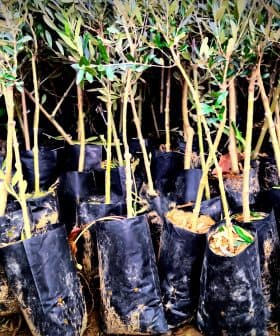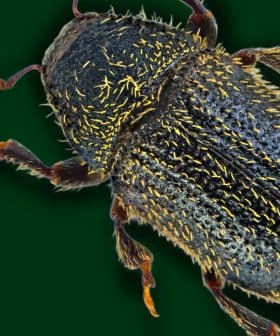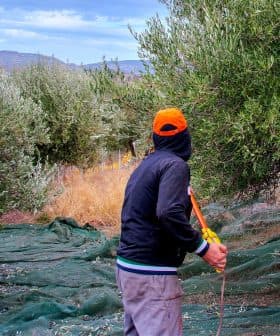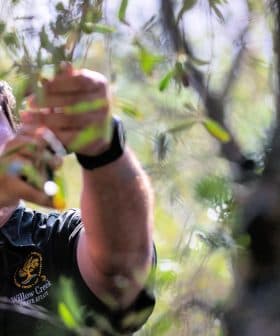 12.1K reads
12.1K readsProduction
Olive Grove Bacteria May Hold Key to Combating Xylella
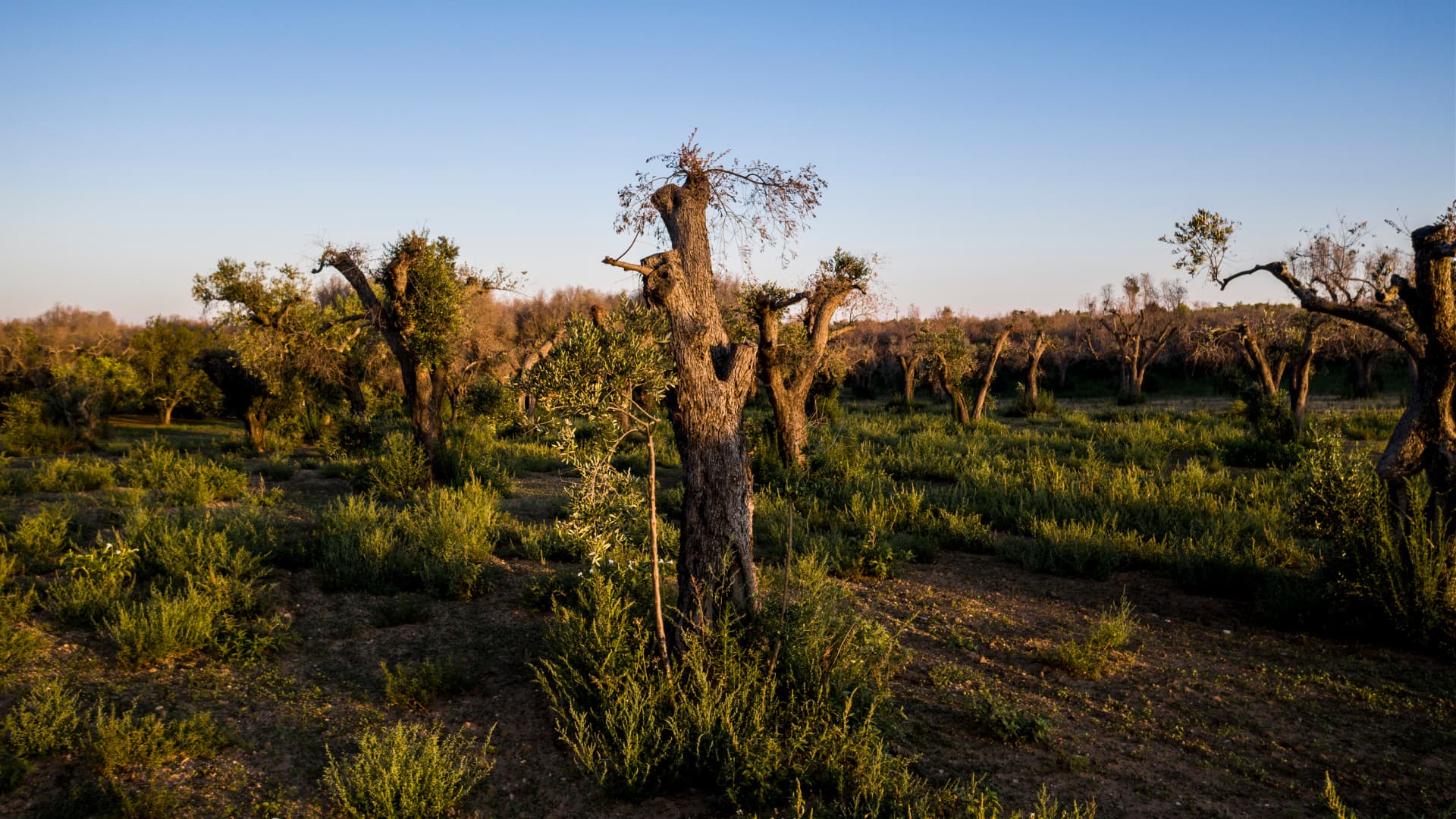
A research team from the University of Jaén has identified a group of dormant bacteria in olive trees that protect them from environmental challenges, which may lead to the development of a natural biopesticide to combat Xylella fastidiosa. The bacteria, Bacillus spp., have unique characteristics that make them valuable for agricultural applications, including enhancing plant growth, controlling pathogens, and detoxifying heavy metals in the soil.
A research team from the University of Jaén has identified a group of dormant bacteria in the leaves and soil of olive trees that protect them from environmental challenges.
Genetic analysis has demonstrated that several microorganisms provide biological advantages akin to a secondary immune system. The researchers hope their findings may allow for developing a natural biopesticide to combat the deadly pathogen Xylella fastidiosa.
See Also:Europe’s Evolving Fight Against Xylella FastidiosaXylella fastidiosa is believed to have arrived in Italy in 2008 by introducing a single coffee plant from Costa Rica.
Xylella fastidiosa, which causes the deadly olive quick decline syndrome, has caused widespread outbreaks in Europe over the past 15 years and is estimated to have an annual economic impact of over €5.5 billion.
The bacterium has proven to be a significant challenge to manage, as there is currently no effective field control method to eradicate it.
In the research article published in Microbiology Spectrum, however, the researchers identified a group of bacteria, Bacillus spp., that they believe could hold the key to combating the pathogen.
Xylella fastidiosa
Xylella fastidiosa is a gram-negative bacterium that is known for causing a variety of plant diseases. It is a pathogen that primarily affects the xylem, which is the plant tissue responsible for transporting water and nutrients from the roots to other parts of the plant. Xylella fastidiosa is a significant concern in agriculture and forestry because it can infect a wide range of plant species, leading to economic losses and environmental damage.
This bacterium is transmitted by insect vectors, such as sharpshooters and spittlebugs, which feed on plant sap. When these insects feed on infected plants, they acquire the bacterium and can then transmit it to healthy plants when they feed on them. Xylella fastidiosa can infect both agricultural crops and ornamental plants, and it has been responsible for devastating diseases in various parts of the world.
Some of the well-known diseases caused by Xylella fastidiosa include Pierce’s Disease, Citrus Variegated Chlorosis (CVC) and Olive Quick Decline Syndrome (OQDS).
Efforts to control Xylella fastidiosa include the use of insecticides to manage the insect vectors, as well as efforts to quarantine and remove infected plants to prevent further spread. Research is ongoing to develop more effective strategies for managing and preventing the spread of this bacterium and its associated plant diseases.
Bacillus species have distinct characteristics that make them valuable for medical, biotechnological and agricultural applications.
They can be used in biofuel, biopolymer and bioactive molecule production. In agriculture, they can enhance plant growth, serve as biofertilizers, stimulate growth and control pathogens, making them promising for sustainable agriculture.
Bacillus-based biofertilizers enhance plant growth and yield by improving nutrient availability, nitrogen fixation, phosphorus solubilization and the production of plant growth regulators.
These bacteria can also produce antimicrobial compounds, are cost-effective and form spores for stability, offering a natural alternative to chemical pesticides.
Bacillus thuringiensis is well-known for its insecticidal properties, while other species like B. subtilis and Bacillus amyloliquefaciens have been successfully used as biocontrol agents in various commercial crops.
Moreover, the ability of some Bacillus species to produce bacteriocins, antimicrobial peptides, shows promise for plant treatment.
While these benefits have already been demonstrated in crops including wheat, sunflowers and potatoes, the research conducted by the University of Jaén team focused on analyzing their presence in Spanish olive groves and their resistance to a series of environmental challenges.
Under the supervision of Hikmate Abriouel, the team embarked on the SMART-AGRI-SPORE project, a European Marie Curie initiative aimed at developing a biopesticide to combat Xylella fastidiosa. The project involved the analysis of 417 bacteria of the genus Bacillus spp. collected from olive groves in Jaén and Málaga.
The researchers sought to identify those bacteria capable of forming spores and hibernating to overcome adverse external conditions and revive when conditions become favorable.
These spores act as a protective shield, making the bacteria resistant to extreme temperatures, radiation and harmful chemicals. To isolate those strains with this capability, the team subjected their samples to temperatures reaching 80 ºC, thus eradicating all those not meeting the criterion.
“Faced with an adverse event, such as a lack of nutrients in the environment, these bacteria enter a state of rest, like a kind of hibernation, until the danger disappears and they can resume their normal vital functions,” explained Julia Manetsberger, one of the paper’s authors.
To further understand the resistance of Bacillus spp. to environmental challenges, the researchers exposed the bacteria to varying quantities of antibiotics and inorganic fertilizers.
Their resistance was normal, similar to that of other bacterial species. This resilience suggests that Bacillus spp. would survive in nature when exposed to such commonly used agricultural compounds, continuing to impart the desired benefits to the olive grove.
The discovery of these unique bacteria in Spanish olive groves opens up possibilities for future agricultural applications.
Given that Bacillus spp. already play a central role as one of the most widely used biopesticides, their potential for novel biotechnological applications in agriculture is promising. The researchers propose the development of a natural biopesticide utilizing this group of microorganisms to combat Xylella fastidiosa outbreaks.
In addition, the bacteria have previously been shown to withstand metal exposure and remove heavy metals from soil, effectively detoxifying the environment.
Heavy metal contamination poses a significant problem for commercial agriculture and food production since plants can absorb these metals, which make their way into the food chain.
The team, therefore, examined the tolerance of their samples to a range of heavy metals. They found that the tested isolates had good tolerance, with iron being the most tolerated, followed by copper, nickel, manganese, zinc and cadmium.
This suggests that members of the olive sporobiota could potentially thrive in soils with elevated metal levels due to environmental factors or human activities.




